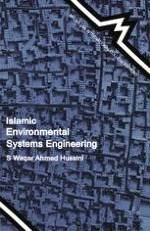1980 | OriginalPaper | Chapter
Islamic state and comparative politics: implications for environmental engineering systems planning
Author : S. Waqar Ahmed Husaini
Published in: Islamic Environmental Systems Engineering
Publisher: Macmillan Education UK
Included in: Professional Book Archive
Activate our intelligent search to find suitable subject content or patents.
Select sections of text to find matching patents with Artificial Intelligence. powered by
Select sections of text to find additional relevant content using AI-assisted search. powered by
The aim of Islam is social justice ‘by establishing what is right and forbidding what is wrong’.1 But whoso wills the end must will the means. As Ibn Taimiyya (d. AH 728/AD 1328) pointed out: ‘To govern the affairs of men is one of the most important requirements of [the] religion [that is Islam], nay, without it religion cannot endure. … The duty of commanding the good and forbidding the evil cannot be completely discharged without power and authority.’2 Without the Islamic state, it is not possible to realise the ideals of Islamic socio-political and economic justice; implement Islamic law; establish the Islamic system of education; and defend Islamic civilisation against domestic perversions and foreign aggression. Society would be helpless against ‘stubborn tyrants’ (jabbār al-‘anīd),3 and Islam abridged to mere worship and platitudes. Islam’s promise as the guide for man’s happiness in this world and the hereafter would not be true. The Islamic state is, therefore, ‘an effort to realise the spiritual in human organisation’.4
